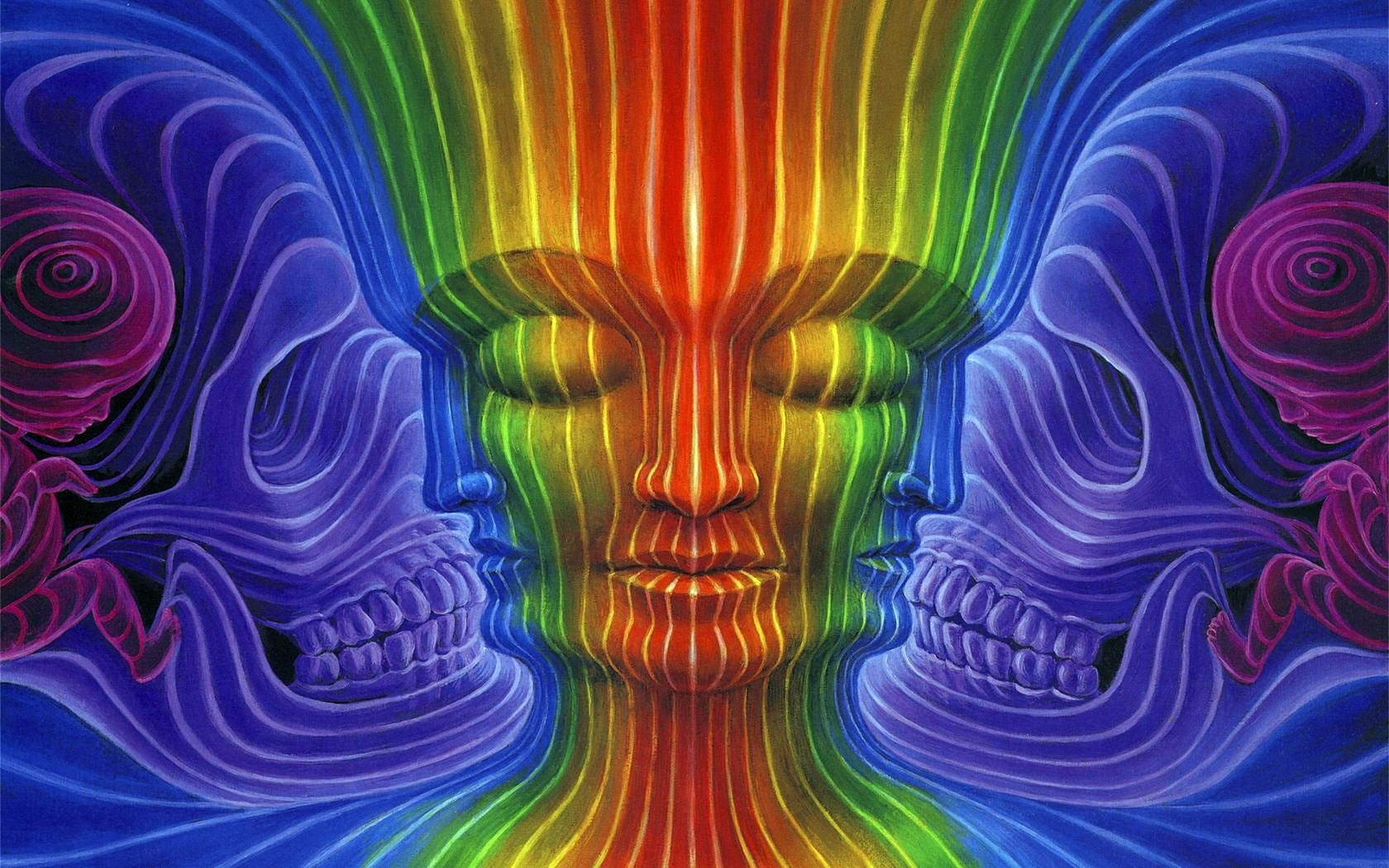Cool. Can we also get moving on Ranked Choice Voting?
I’d take RCV over nothing, but STAR and approval are significantly better like the other user said.
Some reasons for approval
- Addition is the only math involved. So it is extremely easy to get live results during counting. It makes auditing votes extremely easy.
- It is dead simple to understand, so the least amount of voters will be confused by it.
A longer form explanation of some of the other stuff:
Approval voting sounds good.
One issue I see with the star system is that people tend to have preconceptions about star ratings. E.g. some people never rate 5 stars on principle or will rate something 3 stars without realizing that is a 60% rating. My point is I think you might see some weird skew in the results based on this.
I can see that happening, which is why I think approval is the best of them all.
And with that said, so long as not all the votes are given equal scores, their votes would still matter even if they don’t believe in 5 star perfection.
And IIRC, there is nothing actually stopping a STAR system from using a 1 to 10 point scale instead of 5, which would further help with that issue.
Let’s ne honest though, that’s not the real issue. The real issue is low info voters aren’t going to have a nuanced opinion like. It will be 0 or 10. All of the votes coming in like this will invalidate any consideration you spent some time working out to decide a 7.5 is the perfect representation of how you feel.
Even more big picture. We are wasting our efforts arguing over the details of a voting system when voting reform isn’t even on the table.
The real issue is low info voters aren’t going to have a nuanced opinion like. It will be 0 or 10.
Yeah. For the reason I think each candidate should be given one page to explain their policy. And that page should be printed out and available to all voters.
For mail in voters it should be included with their ballot.
Far too often I’ve voted in local elections and tried to research the candidate just to find no information on any of them. It’s infuriating trying to make a choice when it’s impossible to know anything.
We are wasting our efforts arguing over the details of a voting system when voting reform isn’t even on the table.
Agreed. But we can dream.
I love how this video explains the differences between the voting methods. It’s what made me prefer STAR over RCV.
I am a little disappointed that they didn’t include approval as one of the examples.
But still a fantastic video.
This is the only issue worth campaigning on. Fuck everyone for not realizing it. We will never get this system under control if it continues to misrepresent what the majority wants. There is no amount of bargaining and compromise that will ever bring forth the change we need to stop global climate change. Ranked choice - for its simplicity. Star - for its utility. Etc. Etc. Make the debate strictly about how we will reform voting and push everything else to the end of the list.
BTW, I’m not asking politicians to do this. I’m ask you, the people, if you will make your voice heard and enshrine it with a government that truly represents you.
This is the only issue worth campaigning on.
You’re not going to like the people campaigning on it, though.
Spoilers: It’s the Spoiler Candidates
Every candidate should be campaigning on it. Not until the Republicans are brazenly defending the broken system, or alternatively join the move for reformation because they think they can capitalize on it, is the country moving in the right direction.
When the pollsters call you your answer to every question should be, “I don’t care we need vote reform.”
When the media focus groups you,“I don’t care we need vote reform.”
When the NAZIs try to bait you, “I don’t care we need vote reform.”
I know, this isn’t a fully fleshed out strategy but it is a stance that will elevate the discussion.
You’re not going to like the people campaigning on it, though.
Spoilers: It’s the Spoiler Candidates
…because the Dems and GOP benefit from the current system. Any move away from FPTP harms them, so they aren’t going to support it and any other party is a “spoiler candidate” because of how FPTP works.
Any move away from FPTP harms them, so they aren’t going to support it
Sure. But if you don’t vote for the Democrats then you are implicitly supporting fascism and that will mean an end to all forms of democracy (or so I’ve been told).
I respectfully disagree. Any attempt to frame both parties as the same is a big fat down vote from me. You sound insightful and intelligent though.
As far as wanting to maintain the current electoral system, both parties are the same and they are the same in this one particular thing because they both benefit from it and any move away from it upsets the status quo that keeps the money and power flowing to them.
The only move either party wants to make away from the current electoral system is if they could find a way to reduce it to a single party system and that party was theirs.
They aren’t the same in virtually any other way, to the point of being as extremely and overly opposed on as many other things as possible, in part because presenting everything as a dichotomy of extremes reinforces that system.
Hey I appreciate your thoughtful and insightful response. While I am hesitant to agree entirely, especially in an empirical sense, I think much of your statement is probably very accurate and I certainly am not able to confidently state anything to the contrary, on the fly, at this time. I will keep your ideas in mind and I do thank you for some ideas to chomp on.
I kinda want to resist your confident statements regarding the similarities, but honestly I can’t refute what you stated off the top of my head. And upur rebuttal of the “both sides a0re same” schtick is much appreciated, and well stated.
I honestly am surprised by your considerate and thoughtful response. I do a lot of snarkey and thoughtless responses to what I feel are insincere or flimsy ideas presented everywhere, and rarely do I get a response as kind and thorough, solid as yours.
Keep up the food work 8)
Tough luck, if you want to ask the people and want to have a say in national discourse, you have to buy a media outlet like billionaires do.
Defeatism
Keep carrying water for them.
Star Voting is better in every way.
Approval voting is the only method that meets all the requirements for a fair election without elevating an unpopular candidate.
Approval voting still encourages strategic voting and “dishonesty” and does not strongly correlate with actual preference. If there are three candidates, Love, Tolerate, and Hate, 60% could strongly prefer Love, and 30% strongly prefer Hate, but both groups would prefer Tolerate over the other alternative, then Love voters would be smart to not make a second choice even though they would approve of Tolerate.
Australia has optional preferential voting. If there is 10 candidates, you can list them in order you want, but you don’t have to pick them all. You can stop at any point. Pick 3 or 4 in order, or say 7, but you don’t have to rank the nazi at all.
That’s pretty much star voting, except you can give candidates the same ranking
Ok. But why rank them the same?
I don’t see the point. In preferential voting you choose your candidates in a ranked order, so if number 5 doesn’t make the cut in the final count, your next vote (number 4) kicks in, and so on. Not exactly - all number 1 votes are tallied, and the losers are eliminated and then the second vote from the loser candidate gets tallied and so on until the winner is chosen. In this way your ranked choice is never exhausted until a winner arises. Your number 3 choice may get voted in. All votes are potentially important. FPTP sounds like a crap shoot.
Because that may be the most accurate description of your actual preference, which is what a vote should be.
If your vote retabulates when someone is eliminated, you still need to be strategic with your rankings. you want to make sure that your preferred candidates are not eliminated, but you also want to make sure that you’re ranking doesn’t cause one of your preferred candidates to be eliminated prematurely. with star voting, vote always counts.
There’s no runoff If I remember, all your votes are tallied instantly, so you rank them the same if you feel the same towards them
Ireland also has this. It’s great. I believe that’s what’s being referred to as “ranked choice voting” in this thread.
I would generally go quite far down the ballot though I do believe some stop at 1 or 2.
That’s certainly better than what we have.
The goal of approval voting isn’t to pick the candidate the thinnest plurality are the most ecstatic about, but rather to pick the candidate the largest majority consider acceptable. It trends towards moderates by design.
Moderation is not inherently virtuous, and compromise is not always the best path forward. Have you read Project 2025? As an American, that shit is terrifying, and the idea that we should find a middle ground with Christian nationalists is abhorrent. Trending toward moderation encourages extremism and obstructionism, because you get more leverage on the center from the edges. Look at what is happening in France right now, where they use simple ballots but will have runoff elections until majority candidates are elected. Moderation, cooperation, and compromise on the left led to failure.
rending toward moderation encourages extremism and obstructionism, because you get more leverage on the center from the edges.
No, you don’t. What you’re thinking of is a consequence of runoff elections (including instant runoff) that doesn’t apply to preference voting. Preference voting functionally works to blunt the extremes down, unless you have a sufficiently large base radicalized to be you or nothing but then if a majority is dead set on you or nothing that base was going to win regardless of the electoral system.
Have you read Project 2025? As an American, that shit is terrifying, and the idea that we should find a middle ground with Christian nationalists is abhorrent.
Except an approval vote wouldn’t be a vote to find a middle ground on every issue in Project 2025. The idea that Trump or any other Heritage Foundation stooge is a moderate candidate that’s likely to get enough votes to win in an approval vote system where they wouldn’t also win under FPTP or ranked choice or STAR is frankly absurd.
Approval voting is where you mark any number of candidates that you want, and the person with the most marks is the elected person.
The most important issues with a fair voting system are eliminated by this method. Strategic voting will always happen under our performative democracy, which means that all parties are pathways for getting close to the actual goal. It’s only a problem if people are overly worried about genuinely “voting your truth”.
Approval voting counts all “approve” votes equally, which doesn’t eliminate the spoiler effect or create a more fair system than FPtP. Star voting eliminates the benefits of strategic voting and creates the most fair and accurate system possible. Genuinely voting your truth is the only measure of a fair election.
how does approval voting allow for spoilers? The experts that study election systems consider it eliminated under approval voting. It’s literally impossible to be a spoiler, because there’s nothing to spoil. There could be 4 real candidates and 16 no-name candidates, and nothing would prevent people from voting for 18 candidates. All of the eliminations you’re concerned about happen all at once, because it’s about having the most total votes. Votes for “spoilers” does literally nothing to affect the chances of other candidates.
As for “genuine voting”, how does one determine whether a vote was strategic vs genuine? Why does everyone have to conform to a ranked system that is highly susceptible to runoff upsets? I don’t care if people vote strategically, because if the options are check boxes or not, strategy is very limited. STAR is based on instant runoffs with a bit of range voting mixed in. Both are highly susceptible to strategy, as well as several undesirable traits that don’t exist with approval. Please explain to me how it prevents strategic voting.
how does approval voting allow for spoilers? The experts that study election systems consider it eliminated under approval voting. It’s literally impossible to be a spoiler, because there’s nothing to spoil.
I suspect he’s thinking of it’s tendency to trend towards moderates. Like say 60% strongly prefer A, 30% strongly prefer C, but many supporters for either would also be OK with B. Under a lot of ranked choice and similar systems, B has no chance and A definitely wins but under approval if enough A and C voters also tick the box for B then B will win, even if B was only the top choice for a tiny minority because they were “good enough” for enough people.
I’ll take better over perfect especially since better is on the ballot as an option this year for me, but who knows might try to get approval voting on the ballot for next time
My pet peeve is that RCV has a lot of the same issues as FPtP voting, and some local and state governments that have started using RCV are rolling back their progress.
Better might not be good enough, and if it’s not good enough, it lends credence to the argument that progress is bad and the old corruption is better than the new corruption.
I’m curious to hear what those issues are?
I feel well represented under RCV.
The biggest problem opponents are using to block or roll back RCV is transparency and time. Hand counts take longer and may get vastly different results if there are discrepancies. But those concerns are mostly smokescreen from groups that benefit from the status quo. Any hand recount takes time, and if you fully tabulate the entire vote, it’s easy to locate potential problems with the computer count.
My concerns are transparency and honesty, and both stem from the fact that only your first remaining choice counts in each round, and one candidate is eliminated in each round. Because only your first preference counts, the most important selection is your first choice. Everyone’s second choice gets no votes in the first round and will be eliminated, even if they get 100% of the second choice selections.
Several candidates from the same ideological neighborhood split and dilute the vote from those voters for the first round. If everyone doesn’t rally around one specific candidate, all of those candidates could be eliminated in instant runoffs as the lowest vote getter. You have to vote strategically to make sure that the spoiler candidate on your side is eliminated before the spoiler candidate on their side.
Like, let’s say we have five fictional candidates, and arbitrarily assign them Green, Blue, Purple, Red, and Nazi. Blue and Red are the front runners, Green is the spoiler for Blue and Nazi is the spoiler for Red. Purple is a third centrist party
Blue voters assume Green voters will pick Blue or Purple as their second choice, and Red voters assume Nazi voters will pick Red or Purple as their second choice. It’s in both Blue and Red’s interest to see Nazi and Green beat Purple in the first round and then have their opponent’s spoiler beat their spoiler in the second round. This creates a scenario where strong Blue supporters are strategically voting for Nazi as their first choice, even though that would be there last preference.
So let’s say the preferences roughly break down into 6 categories
30 BPG 30 RPN 15 GPB 15 NPR 5 PGB 5 PNR
With a FPTP election, Blue and Red would convince everyone that Green, Nazi, and Purple have no chance of winning, and therefore voters should pick a frontrunner. And they’d be right, because FPTP sucks balls. But the winner would be whichever frontrunner can convince enough voters to pick their third choice.
With RCV, it is better but still not great. This scenario would be deadlocked at the second round, so Red attempts to convince a few Nazis that their candide cannot win and switch their vote from NPR to RNP. Blue tries a different strategy, and takes some of their own voters to switch from BPG to NBP. Both frontrunner candidates are still vying to convince some of the Purple supporters to change their minds. Anyone that picks some combination of GNP risks having their ballot expire, so they have to pick R or B even if they hate both equally.
So there’s still almost no chance that a third party will win, only now it’s more complicated. Plus if there’s a hand recount, a few votes one way or the other can dramatically change the final tally by changing who comes in last. A better name for RCV is Last Past the Post. It’s better, but it’s still not representing the true will of the voters, and it’s not encouraging campaigns to win hearts and minds. It promotes gamesmanship and back-room deals over voter outreach and turnout.
Approval voting is pretty good, someone else mentioned that one. The only problem I have with that is that it encourages negative campaigning. Every campaign would be attacking Purple, and promoting party purity and loyalty as an ideology. Compromise becomes the enemy, because you have to control the ball.
Star Voting is fair. Every vote counts, and every vote is an accurate representation of the voter’s preference. There’s only one instant runoff, so a recount might change who is included, but there’s no reason to be strategic with your votes. Negative campaigning is discouraged, and candidates are rewarded for finding common ground because ratings are not mutually exclusive. And the best advantage, there’s no way for the frontrunners to use demagogeury or political maneuvering to box out new candidates with their clout.
My biggest concern with RCV is that its flaws are dampening enthusiasm for change. People recognize that the current system sucks balls, but if RCV ends up disappointing those who were on the fence about change, they aren’t going to look for new solutions. They are going to retreat to the devil they know.
Right…I’ll preface all this by saying I live in an RCV country which used to have a 2 party system way back when. The question was genuine because I’m very happy with our voting system and if there were flaws I’m interested to explore better options.
The hypothetical you’re discussing there never happens. I’ve been voting for 30 years and have never come across (or myself done) the kind of shenanigans you mention. There’s just no need for it.
You go in, rank your options in order and the fairest option for you (with some small caveats) comes out on top. Our recent European elections in my district are a good example. There were 4 seats up for grabs and 8 parties and a bunch of independents up. The larger parties will frequently field 2 candidates. In that election, the 5th place candidate overtook 4th on eliminations from the 6th place preferences to take the last seat.
In the case of the nazi’s, they get eliminated first round here then 90+% of their votes will pass to some other right wing party with 10% not counting because they are the end of the line for that voter.
One example I’ll give is for a centre left voter. They would hypothetically vote some combination of labour, greens and centre left independents. Once those options had run out on the ballot, you’re looking at whether they’re more likely to go far left or centre right. Where I live, a large number of the votes will actually fall centre right as they’re closer idealogically than far left.
For what it’s worth, here’s how the breakdown of voting was in my district:
https://www.rte.ie/news/elections-2024/results/#/local/fingal-county-county
The counting thing actually adds a bit of spice and voter excitement because you’re keen to see how votes transfer in each round. Certainly I was checking in regularly and was keen to see if the pundits were right on the final elimination I mentioned above (they were).
Recounts are rarely necessary but do happen in the event that it’s looking close for an actual seat and not who’s going to be eliminated next.
I have heard of star voting and must read more on it, but I am very happy with RCV for now and I’m not sure Star would represent any meaningful change in a country that moved from 2 party to many party with a strong independent voice in our parliament.
Edit: One thing I like about RCV is voting for a candidate even though I feel they’re likely to get eliminated simply because they match my views closely, knowing that my further down preferences will count and if they are elected well all the better. That is just not really an option with FPTP. It’s a horrible system.
We should put all options for voting on the ballot. Then FPtP will win because the reform vote will be split and the status quo people will vote as a bloc.
First I’m hearing of this. I’ll look into it.
I remember being in 3rd grade and learning about the electoral college and thinking, “that’s the stupidest fucking thing I’ve ever heard of”. Still true to this day.
I’ve had the same reaction learning about religion 😂
SAMESIES ❤️
Learning that it was so rich white people in the south could substitute the votes of newly freed black slaves with theirs is what got me.
All this shit is because they were too fucking nice to the slavers.
Should have solved that problem back then.
Note how racist and evil the south still is, and compare it to Germany, and they had 1/3 the time to get better.
Sherman and Brown did nothing wrong and should have had opportunity to finish their job.
Okay guys stop up voting this! Simply let me assure you that I will upvote for you!
If you upvote this comment to 100, I will upvote the way you want me to upvote.
Actually I’ll do you better! Look. I know these guys who can upvote. If you upvote my comment past 100, I’ll have them vote for you just the way you telepathically have told me to upvote by up voting for me…what? Why would you even need to know me or my friend who hasn’t even talked to you directly? That’s crazy talk! I’m an upvoter, I upvote. They. My friends who can upvote are true upvoters too. Soon you won’t even need to upvote at all! You can just go read all the shit we Upvoted for you! Yey! We call our selves the “Upvotlectoral” college. We learn algebra in this college too, but we never graduate…at least you don’t know if we have graduated or not.
Sounds like this clown lives in that one blip in Nebraska or whatever that can impact shit, you know what to do bois. Electoral vote this mofo out the comments section! /s (chill)
I’ve Upvoted you! See? Pretty simple right? Oh. Ah, you can’t drive your car anymore. You’re driving a Japanese car and they are destroying our jobs. Please see a ford dealership. And you’ll need farmer’s or the gecko. Anyway, details! Thanks for voting up!
Then how do you stop urban concerns from completely trouncing rural concerns? Voters from rural areas have valid concerns which are largely opposite of urban voters. If you get rid of electoral college, candidates will campaign in major cities and that’s it. Nobody else will matter.
For anyone downvoting me- you should know I’m a liberal-libertarian registered Democrat from Connecticut, who’s very much against Trump and most of the BS today’s GOP is peddling. I just don’t think disenfranchising anyone who doesn’t live in a city is the answer.
So the people in cities should just be worth less when they vote? It’s a federal vote for a federal office, everyone in the country should count the same.
The individual states already have their own powers which make sure the federal government doesn’t make decisions that are bad for those states. And each county and town have their own governments that pass local laws.
I’ve also heard this argument so many times but I haven’t heard any actual examples.
How do you stop a majority of the electoral college from completely trouncing the concerns of the other states?
and what has that gotten us? rural communities are subsidized out the wazoo as the urban centers across America are strangled and starved. as the more powerful minority of people is catered too
It’s almost like many people are getting taxed w/o proper representation…
no, they ARE represented, it’s just that the system is old and can’t deal with modern technology, like social media, or even the radio
As opposed to now where like 10 states are tossups and the rest are locked in?
Which would be replaced with “Can the Democrat win California by a large enough margin?”
Which was literally the case when people complain about Clinton winning the popular vote in 2016 - across the 49 states that aren’t California more people voted for Trump, but she won California by such a large margin that she won the popular vote because of California alone. Same thing in 2000, where Gore’s popular vote lead was smaller than his margin in CA.
Oh jeeeeez, maybe republicans would have to have real policies that appeal to a majority of Americans, instead of dipshit authoritarian policies that only enrich the already rich and take rights away while mainly pandering to racists in the population at large.
The electoral college is the major reason why the republicans have gone absolutely bugfuck, because they can win with a minority of votes, allowing them to be as undemocratic as they want to be, knowing they have a barely large enough base to squeak through in all the right spots.
And considering the results of the bush and trump presidencies, you’re making the argument against the electoral college, because their two picks objectively made the country worse.
FYI Hillary did not win the popular vote just because of California
Also you shouldn’t reward bad actors providing a shit place to live by making their vote count significantly more.
One citizen one vote!
FYI Hillary did not win the popular vote just because of California
Yes, she did. That there are other combinations of states that she won that combine to have a similar total margin doesn’t change that her national margin was smaller than her margin in California. And that’s the crux of the argument Snopes makes - she won the national popular vote by 2,833,220 and sure she won California by 4,269,978 votes but there are other states she won that if added together had a combined margin in her favor of more than 2,833,220 votes and also just her California votes alone wouldn’t be enough to exceed Trump’s vote count nationwide so it doesn’t count.
Which is…kinda ridiculous? It’s a big stretch for a frankly kinda dumb claim.
Also, what is wrong with only winning California, anyway? California represents the broad spectrum of a modern America and it has its rural areas as well. It is easy to argue that it is our most important state, too.
What people in California want should matter even if it overrides smaller red states - since they will likely only hold us back anyway.
Deleted
Which would be replaced with “Can the Democrat win California by a large enough margin?”
If it’s going to be fucked either way I’d rather at least have it be fucked in a way where every vote counts the same rather then a Wyoming vote being worth like 4 times a California vote owing to the house of representatives population being limited which means Californians aren’t being properly represented in the house.
California is actually about middle of the pack for the House, currently. What skews the electoral college is that eveb the smallest states still get two Senators and a representative, and thus 3 electors.
The states that are least represented in the House tend to be ones that have 1 or 2 Reps and are very close to getting one more. Like Delaware, Idaho or WV. All of which are over 895k people per Rep. Most states are somewhere in the 700s.
Okay, that’s just fine with me. California is arguably our most important state and has a huge population. So of course winning there should matter. This is not hard.
Winning there matters currently. More than any other state. It’s just everyone assumes the Dems are going to win it so it’s less of a big deal because depending on your party it’s either a given or a lost cause.
You should read what the electoral college does, because that’s not what it does.
Not the previous commenter, but I’m pretty certain that the, apparently fictional book, that Leave Burton showed on either The Daily Show, or Last Week Tonight, entitled It’s all Because of Racism, would cover what the EC’s actual purpose is. Though in this particular case it may be fairer to say classism.
I think it was less overt racism, but still pretty racist.
But mostly because Classism and Racism were pretty intertwined back in the day, what with non-white people essentially being entirely disallowed from actually being a higher class.
deleted by creator
It’s a package deal, really.
Sure, then we can have another republican get elected against the will of the people. Clearly rural concerns are more important than preventing authoritarian idiots like trump from being able to undemocratically take power.
And just what are these “rural concerns”, anyway?
Usually bs like “good Christian values”, which are ultimately so anti-christian that it’s almost humorous.
I spent my formative years in a very rural area, and that tracks with my experience.
Cities matter more. Sorry, but that’s the reality.
Cities are where people live. People matter.
Cities are where culture happens. Culture matters. You’re not going to have a big art/music/anything scene in bumbleweed, NE because there aren’t enough people there to constitute a scene.
Cities are where economy happens. Money moving around matters. There are more transactions per day in the corner shop by me than a whole week in some country town with 700 residents.
Rural people still have the Senate and local government. Their rep in the house (which should be expanded) also should speak up for their region.
Everyone deserves some minimum respect, but the idea that nowhere-utah is just as important as Queens is insane. A minority holding the majority garbage is not good. Especially when that minority seems fixated on terrible ideas like climate change denial and xenophobia.
I say it all the time - places like California and New York are strategically more important, too. Most of the game development, the movie/tv industry, software, even a lot of our food, happens in CA. And then a great deal of finance happens in NYC. Lots of defense industry stuff is clustered around DC as well.
It’s called “flyover country” for a reason. If you want to partake in what is happening, then move to those locations. Unfortunately, our backwards slave-era system gives wayyyy too much power to regions that just don’t matter as much.
Ever consider where your food comes from?
The Central Valley and Hi-desert, we dont really impirt too much food in my region of California.
Yeah, a lot of it comes from California. And Mexico. Why do you ask?
With respect sir (or madam), you are personifying the ‘ivory tower elite’ attitude that so many conservatives make fun of. 'I matter, others don’t.
You think there’s no culture in rural areas? That you need a giant festival to have culture?
That corner shop that has 100 transactions an hour… where do you think the bread they sell comes from? The flour? The avocadoes on the avocado toast? (sorry, I had to :P ) Sure as fuck doesn’t come from the city. You can write the rest of the nation off as unimportant and then see how unimportant they are when your fridge is empty. They matter.the idea that nowhere-utah is just as important as Queens is insane.
And the idea that Queens should be able to dictate policy that applies nationally including Nowhere, UT is just as insane.
Especially when that minority seems fixated on terrible ideas like climate change denial and xenophobia.
I’ll give you that- most of the conservative platform these days is a bit on the batshit side.
But there’s other parts that make sense. Take guns for example. A liberal in NYC has the 11th largest army in the world 3 digits away. Police response time is seconds or minutes. So ‘nobody needs a gun’ is a common urban liberal position.
Go out in rural areas, there might be two deputies for an entire county with police response time in the range of 30-120 minutes if at all. And that county may have 4-legged predators like bears, wolves, etc that can threaten humans. So that guy wants a GOOD gun to defend himself and his family, because if there is a problem nobody else is gonna arrive until it’s too late.
The urban liberal doesn’t consider the rural conservative POV, and they want to apply their position nationally. Should the rural conservative have no useful defense against that?Guns are just an example, but that overall is why I think the electoral college has a place. House is based on population, Senate based on statehood, Presidency is in the middle with influences both from statehood and population. That’s a good way to go.
And FWIW, I also support INCREASING the population representative in the House. The current cap of 437 has not served us well with the expanding US population, and there’s now over 700k citizens per representative. That’s far too many to get voices heard, and one rep covers far too many disparate people. And it also in the House increases influence of smaller states (to a minimum of 1/437th).
I believe the cap should be raised to a very large number, perhaps several thousand. It may no longer be possible to have the entire House convene in one building, but technology has solved that problem. If you have one representative for every say 10,000-25,000 citizens, it becomes much easier for a representative to truly represent their citizens in detail and gives a citizen much greater access to his or her representatives.You think there’s no culture in rural areas?
There is less cultural output because there are fewer people. There’s probably a thousand new bands that started in Brooklyn this month. You just can’t have those numbers out in the sticks because you don’t have the people. There literally aren’t enough singers.
Culture matters. People interacting and inspiring each other matters. It’s not that there’s nothing happening out in Wisconsin or wherever, but there’s less. There are fewer people to be doing stuff!
I almost wrote a preemptive response about “where does your food come from”. I don’t think most of the people living outside of cities are farmers.
A quick search says
The Midwest rounds out the top five states with the most farmers: Missouri (162,345, or 5% of the labor force) Iowa (145,432 or 9% of the labor force) Ohio (130,439 or 2% of the labor force) Oklahoma (130,434 or 7% of the labor force)I don’t know if https://usafacts.org/articles/farmer-demographics/ is a real site but it would be awkward for someone to make up these numbers.
That’s a lot of people in the sense of like “I couldn’t have that many people at my birthday party” but not a lot of people compared to like, who lives in major cities. Bushwick, Brooklyn is one neighborhood and has like 130k people.
Food is important but probably not a justification for holding everyone else hostage. Especially when most people living in those areas aren’t even growing food. (Some are second order involved, like the guy who works the Laundromat helps the farmer or whatever). Also especially when the efforts being stymied would help people, like student loan forgiveness or federally funded school meals.
The urban liberal doesn’t consider the rural conservative POV, and they want to apply their position nationally. Should the rural conservative have no useful defense against that?
The rural conservative POV is utterly poisoned by decades of racial violence and regressive policies. There’s like a mass shooting every day. Climate change is going to fuck us. Conservatism is not an okay world view.
That said, the answer is probably local government for things that are actually local. Environmental issues cannot be local. You can’t have this town dumping mercury into the water and pretending that’s just fine. But for something like “we want a bike lane here” or “we want a library that’s open weekends” that’s doesn’t need to be federal. But if “local” means “no queers allowed to get married here” then the locals can fuck themselves.
Guns are a whole separate wedge issue. I think they should at least be treated the same as cars- license, registration, insurance, mechanisms to remove the license like DUI. I don’t know how close to reality that is.
I wrote this on my phone so it’s not my best work.
For guns, I’ve recently run into a point of view that I think is valid: the above structure (insurance/license) disproportionately favors the wealthy. Ultimately it just adds a barrier for the poor.
I fully understand that the stats show that gun control laws DO indeed decrease GUN violence. However violent crime in general doesn’t really change. The ONLY statistically effective way that guarantees a reduction of violence on the whole is lifting people out of poverty. The less poor we have, the less violent crime. Social programs can lift us out of so many issues.
This is true. The same problem applies to transportation, health care, food security, etc. Poverty is terrible. Unfortunately, the right wing also seems to hate any effective programs to deal with it. No school lunches, no basic income, no nationalized insurance, etc etc.
Right, it’s especially rich because that the demographic that’s overwhelmingly “Christian” despite consistently voting against policies that align with “Christ’s” teachings.
That’s what the Senate is for. Two senators per state regardless of population. Wyoming has as much of a say as California does.
In all honesty, that should change as well. I don’t think that’s doing any good, either. It gives people with completely backward and insane ideas the impression that their positions should be on equal footing with normal people’s ideas.
I am not trying to invalidate anyone’s ideas.
But rural voters and urban voters have different needs. Neither is ‘wrong’.
For example- the urban voter might have a lot of gangland gun violence, so they push for strong gun control.
The rural voter OTOH has a police response time of 20+ minutes or more, and real threats to life and property from four-legged predators so they want real useful guns to defend themselves.Neither is wrong for pushing their particular needs. They just don’t acknowledge the other exists.
Quite frankly if you’re going to say urban people are ‘normal people’ and rural people are ‘backward and insane’, then I’m quite in favor of reducing your own influence (and I say that as a liberal voter and registered Democrat). Good government recognizes that one size doesn’t fit all.
I don’t know of anyone considering getting rid of guns that would be used for pest control in a rural area. Beyond slogans and bumper stickers, is anyone seriously proposing that?
I think that the people in the places where nearly all the people live (urban centers and their suburban surroundings) surely can arrive at sane guns laws, taking into account the (valid) concerns of the few remote rural people.
So that covers gun laws. Is there anything that the majority of voters cannot grasp about how to govern rural areas?
Actually I’m not sure we agree on that.
What sort of guns do you feel would be appropriate for pest control in rural areas?
And what of the House? It’s largely based on population. If the White House and the House of Representatives are both population heavy then the Senate is entirely outnumbered.
The point is supposed to be that the House is population based, the Senate is state based, and the Presidency is somewhere in the middle.
The cities is where all the people are. What are these “concerns” that rural areas have that should override most of the concerns of the majority of people?
Almost like they could be represented in the house or the Senate, right
deleted by creator
Even if the 10 largest cities all voted Democrat that would only account for 8% of the vote. And not everyone votes the same way in a city either. There are plenty of republicans voting in major cities but their vote doesn’t matter because of the college. Long Island went to Trump. NYC still got 400,000 votes for Trump. All this means is more people get a voice.
That’s great but do an electoral college majority want to end the electoral college?
Yeah this headline is like “animals disapprove of farm”
Doesn’t matter. Ending the electoral college would require an amendment, and amendments require 3/4 of states to approve them. Abolishing the electoral college benefits California and the smallest states that expect to always side with California no matter what, which doesn’t get you to the 38 states required.
It would not. There is already a pact with a bunch of states that say once they have enough support they will put their electoral votes towards the popular vote of the country not the popular vote of their state. If enough states get on board the EC becomes powerless. Because the states determine how they vote.
https://en.m.wikipedia.org/wiki/National_Popular_Vote_Interstate_Compact
They are getting close. A couple more states needed for activation.
And if and when it gets passed, the conservative scotus, which has constantly ruled in favor of states rights being nearly unlimited and that precedent or other writings about the cotus don’t count, will buck both these trends and vote that this violates the cotus based on some obscure writing by some founding father.
This SCOTUS would uphold Dred Scott v. Sanford.
Republicans: “States rights!” States: Decriminalize cannabis, affirm women’s rights, sign on with the NPVIC, etc… Republicans: “No, not like THAT!”
Probably that interstate compacts have to be approved by Congress. It would be the most obvious angle of attack.
I read that last part as, “A couple more states needed for Activision” and my blood pressure temporarily spiked lol.
Doesn’t end it, merely does an end run around it. Also unlikely to ever take effect, because to get to 270 electoral votes worth of states supporting it you’re going to need to get states on board with it who will directly lose influence and/or who generally don’t vote in line with California and moving to the winner being decided by national popular vote (whether directly or by using it to pledge electors) essentially makes the result largely determined by turnout in California (both times in recent history the popular vote and electoral vote were not in alignment, the margin for the national popular vote was smaller than the margin in California).
It’s a lower bar to reach than actually ending the electoral college, but it’s unlikely to succeed for essentially the same reason - you have to get multiple states that will essentially lose any influence over the executive branch if they approve it to approve it.
Yea you’re right. I just thought it was funny that a majority of Americans disprove of something that prevents a majority of Americans from being able to choose something
Fair enough. There’s an interstate compact that’s been joined by several states that does an end run around the electoral college (all member states agree to give their electors to the winner of the national popular vote regardless of their state’s votes once 270 electoral votes worth of states join). That’s a lower bar than the 3/4 of states needed for an amendment, but will also inevitably face a legal challenge regarding needing federal approval as an interstate compact.
It’s still…several states away from going into effect for basically the same reason an amendment on this won’t pass - it benefits California and the smallest states that expect to always side with California, which isn’t enough to get to 270 electoral votes.
That’s interesting. Do you know which states haven’t yet joined/would be the most likely to flip to get to the total?
Wha?.. Math hard you go ungabunga? California population has 38 million. That’s only 8 million more than Texas.
Also, voting wouldn’t be by state anyway, so it wouldn’t matter? Not all 38 million Californians will vote the exact same way.
Err, ending the electoral college requires a constitutional amendment. Proposing a constitutional amendment requires either 2/3 of state legislatures or 2/3 of both houses of Congress to set in motion and requires 3/4 of states to approve. This is why the ERA was never ratified - it only got 31 states.
Add Ranked choice voting along with getting rid of this.
deleted by creator
Is ranked choice voting the new shibboleth to determine the in -group?
Go to bed, Jordan Peterson
Some Democrats oppose ranked-choice voting (RCV) because they fear it could threaten their incumbency and power. For instance, the District of Columbia Democratic Party has opposed a ballot initiative for RCV, with Washington Mayor Muriel Bowser calling it “a bad idea.” source
“some” == 5 children on a college campus
Removed by mod
Cool. Too bad it’s never going to happen. The entire US political system is designed to prevent the will of the people from being enacted.
America Is Living James Madison’s Nightmare
Madison and Hamilton believed that Athenian citizens had been swayed by crude and ambitious politicians who had played on their emotions. The demagogue Cleon was said to have seduced the assembly into being more hawkish toward Athens’s opponents in the Peloponnesian War, and even the reformer Solon canceled debts and debased the currency. In Madison’s view, history seemed to be repeating itself in America. After the Revolutionary War, he had observed in Massachusetts “a rage for paper money, for abolition of debts, for an equal division of property.” That populist rage had led to Shays’s Rebellion, which pitted a band of debtors against their creditors.
Madison referred to impetuous mobs as factions, which he defined in “Federalist No. 10” as a group “united and actuated by some common impulse of passion, or of interest, adversed to the rights of other citizens, or to the permanent and aggregate interests of the community.” Factions arise, he believed, when public opinion forms and spreads quickly. But they can dissolve if the public is given time and space to consider long-term interests rather than short-term gratification.
To prevent factions from distorting public policy and threatening liberty, Madison resolved to exclude the people from a direct role in government. “A pure democracy, by which I mean a society consisting of a small number of citizens, who assemble and administer the government in person, can admit of no cure for the mischiefs of faction,” Madison wrote in “Federalist No. 10.” The Framers designed the American constitutional system not as a direct democracy but as a representative republic, where enlightened delegates of the people would serve the public good. They also built into the Constitution a series of cooling mechanisms intended to inhibit the formulation of passionate factions, to ensure that reasonable majorities would prevail.
The people would directly elect the members of the House of Representatives, but the popular passions of the House would cool in the “Senatorial saucer,” as George Washington purportedly called it: The Senate would comprise natural aristocrats chosen by state legislators rather than elected by the people. And rather than directly electing the chief executive, the people would vote for wise electors—that is, propertied white men—who would ultimately choose a president of the highest character and most discerning judgment. The separation of powers, meanwhile, would prevent any one branch of government from acquiring too much authority. The further division of power between the federal and state governments would ensure that none of the three branches of government could claim that it alone represented the people.
sorry, I asked the parliamentarian if we could do democracy today and he told me to go fuck myself :/
Large majority of voters want to change a system where the large majority of voters don’t have as much say as a a minority of voters.
If the Democrats actually get the house and the senate this election, they should definitely looking into changing the voting system. It would be in their best interest.
Would require a constitutional amendment to do so. 2/3rds majority of the House and Senate and then ratification by 3/4ths of all state legislatures to outright remove it.
Or the interstate voting compact which just needs a couple more states. But that’s a less direct mechanism that keeps the electoral college intact, just changes the way electoral votes are distributed.
I feel like it would be more realistic to repeal the Apportionment Act of 1911. At the very least, it would correct the massive inequality in congressional apportionment. It would also increase the number of electors in the largest states, which would mostly benefit democrats.
There are still some other things that can be done federally to help. If they change the size of the house (determined by legislation not constitution), it also changes electoral votes for states. Electoral votes are based on house + senate seats per state
On its own that makes the electoral college much closer to representing the population of each state
I would also presume it likely would also make the popular vote compact way closer or cross the needed majority of electoral votes. Though I haven’t done or seen any analysis on that directly so not 100% sure because the ways seats are appropriated can be funky and non-linear
Yes and no.
https://en.wikipedia.org/wiki/National_Popular_Vote_Interstate_Compact
The NPVIC may work to get around the electoral college without amending the constitution. It would still be FPTP which wouldn’t be great. But it would at a minimum be an improvement, because it would do away with swing states, red voters stuck in blue states, and blue voters stuck in red states.
because it would do away with swing states, red voters stuck in blue states, and blue voters stuck in red states.
…and replace it with the election being won based primarily on turnout in California. Like seriously, the last few times a candidate won the electoral college but lost the popular vote it was a case where their margin in California was larger than their margin nationally. As in across the other 49 states more people voted for the person who won the electoral college, and California by itself was responsible for the swing to the other direction. Because California is just so ridiculously big compared to the other states.
and replace it with the election being won based primarily on turnout in California
No, it would replace it with a majority FPTP country wide system. Californians are a minority of the country. They do not get sole control, nor would they under a popular vote system.
California was larger than their margin nationally.
But not all of that margin comes from California, and not all of Californians vote blue.
Where you live should have no effect on how much of a voice you have in the federal government. Everybody’s vote should be counted, and counted equally, because we’re all made equally. The current system completely fails at that.
No, it would replace it with a majority FPTP country wide system. Californians are a minority of the country. They do not get sole control, nor would they under a popular vote system.
Unless this also dramatically changes voting patterns nationwaide it’s essentially the same thing. Every time in recent history the electoral college and popular vote have yielded different results, the difference was smaller than the margin in California.
the difference was smaller than the margin in California
That’s arbitrary. The same is probably true of Florida/Texas combined.
The whole point is that the power of a vote is independent of location.
While dramatic things like making the senate votes proportional or abolishing the electoral college might require a constitutional amendment, the text is silent on plurality vs RCW or what have you.
Congress could mandate a switch with a simple law, and point to their power to ensure democracy, same as the post bush v gore laws that mandated electronic voting machines.
Or the interstate voting compact which just needs a couple more states.
Of course, it’s already got every state that benefits from it being passed, and a few more that signed on but only benefit so long as their preferences are always in line with California. Which collectively isn’t enough for it to go active.
Now you’ve got to convince states that will both lose power and routinely get results out of line with their preferences to sign onto the thing that will do that.
…and once it goes active it will go to the courts where the argument will be whether as an interstate compact it has to be federally approved or if the state’s right to assign their electors as they please trumps that.
Don’t the states choose the voting system for their particular state? If so, it will never happen.
As if Dems would do anything that could compromise their own power.
Democrats generally favor ending the electoral college, if nothing else because it would tend to make them win elections more due to the packing effect of NY and California and the tendency of rural states to get more votes per capita. In fact several states, pretty much all the solid blue states in the last couple of elections, have passed a compact to give all electoral votes to the popular vote winner.
Dems face an electoral cliff if they do nothing. In a few more cycles, it may be impossible to win the senate or the presidency, even with a majority vote behind them, due to too much power in small states.
Everyone saying this can’t happen and stuff but we already have started the process. There is a set of several states that signed a pact that make it vote for the majority. Can’t think of the name of it but we only need several more states (not all of them) to meet needed electoral votes to basically bypass the electrical college.
This. Thanks!
We would just need Wisconsin or Pennsylvania to adopt it if the currently “pending” states adopted it. This is actually a lot closer to being possible than I thought.
As usual, Republican states won’t adopt this. And you can expect Republicans to appeal this all the way to the Supreme Court if it ever does get adopted, which the current conservative majority will almost certainly bend over backwards to find “unconstitutional.”
The thing is that the National Popular Vote Interstate Compact is nothing until it’s all the way there. Having 95% of the necessary electoral votes has the same effect as 0. So there’s no reason for opponents to even care about it until it is within striking distance of the threshold. It seems to me that if we ever reach a point where it comes down to just a state or two, that legislation will be fought tooth and nail, not just in those last states, but there will be fights and legal challenges in states that have already entered the compact to reverse it too. And even if we manage to win the fight and it gets activated, we will still have to keep fighting in perpetuity because almost any state pulling out would undo the whole thing.
I’m not saying people shouldn’t even try, maybe some good comes of it regardless. It just doesn’t seem like a solution as much as a statement.
The real solution is to allocate delegates proportionally to how citizens vote, as is done in Nebraska and a couple other states. This achieves exactly the same purpose as the NPVC but is actually politically tractable.
No state has any incentive to assign its delgates to a person the citizens of the state didn’t vote for. You can do what the NPVC does and make it contingent upon everyone playing along, but that requires everyone to play along and is incredibly tenuous. Even if it ever goes into effect, as soon as states allocate delegates to someone who wasn’t the most popular candidate in their state they’ll pull it, and the whole thing will fall apart.
Every state has incentive to allocate its delegates proportionally. That’s exactly what people want. They want that more than winner takes all. It doesn’t require a huge chuck of states to buy into it amd it isn’t tenuous. But it accomplishes the same goal; if states allocate delegates proportionally to how they vote, then the most popular candidate gets the most delegates. If you’re in one of the many states that has winner takes all, advocate to do what the few more democratic states have already adopted and are happy with.
This only solves it if you also make the number of delegates for each state be proportional to its population size. California has 68 times the population of Wyoming but only 18 times the number of electoral votes.
What you’re describing has never resulted in the popular vote winner losing the electoral college. The popular vote winner has always lost because states allocate delegates as a winner-take-all system.
I’m not sure what you mean. Of course it’s never happened because we’ve never done it that way.
If you’re saying that if you go back and calculate previous elections, then it never would have made a difference, that doesn’t mean it could not happen. Growing up I learned that there was only one time in history that the popular vote didn’t match the EC, but now it’s become a constant threat. If it becomes a viable path then eventually it is bound to be exploited.
What you are talking about simply isn’t functionally equivalent to just straight up popular vote, for the reason I described. Votes are not worth the same amount in different places.
The fact that the number of delegates is not exactly proportional to the population of a state has never resulted in a popular vote mismatch eoth the college. It may happen, but it’s incredibly unlikely. Every time there’s been a mismatch has been because states allocate delegates in a winner take all manner. One of these this is a real problem amd one is a hypothetical problem. Solving the real problem is straightforward, and involes state level action of only a few states. The hypothetical problem is difficult to solve smd requires coordinated effort of many states at ones. You can spend your time solving a hypothetical problem and maybe achieve success in 70 years. Or you you address the real problem and succeed in 20 years.
Well yeah… The electoral college consistently lets a minority opinion override the majority, so of course a majority want it done.
Problem is that minority that gets their way today aren’t going to yield if they can help it.
It’s rule by the majority with respect for the minority not rule by the minority in the majority just take it.
Edit: at least it’s supposed to be
What they tell you that it is -vs- what it actually is.
The political and economic system hides everything from us so that all we see is the individual and all these fragmented pieces – and our education only reaffirms this viewpoint. It isn’t until you educate yourself as a worker and understand the system from a class perspective (Marx) that you can begin see it in its totality for what it really is.
The one time we all could’ve used conservatives’ hatred of minorities and they just let us down.
because in this case they’re the minority
Thing about the electoral collage is that it doesn’t matter what the large majority wants.
The problem with a simple majority is it allows large states to completely dominate less populated states.
We are a republic, kind of like how the UK is a union of (at least) four countries each with its own government. We are 50 states each with its own government and the constitutional right to make it’s own laws about matters not specifically delegated to the federal government (see the abortion rights debate).
The founding fathers established the electoral college as a compromise between electing the president in a vote by Congress and a popular vote. I would take an amendment to the constitution to get rid of it.
The founding fathers established the electoral college as a compromise between electing the president in a vote by Congress and a popular vote. I would take an amendment to the constitution to get rid of it.
They established it as a way to launder slave votes into presidential elections, as stated explicitly by the man responsible, James madison:
https://founders.archives.gov/documents/Madison/01-10-02-0065
There was one difficulty however of a serious nature attending an immediate choice by the people. The right of suffrage was much more diffusive in the Northern than the Southern States; and the latter could have no influence in the election on the score of the Negroes. The substitution of electors obviated this difficulty and seemed on the whole to be liable to fewest objections.
The electoral college exists because southerners were spoiled bitches who wanted more power than they deserved, then they threw a tantrum when they lost anyway (the Civil War), now they keep threatening and whining if they can’t keep their unfair advantage while gerrymandering to hell.
I’d be fine with the EC, if we also denied the electoral votes of states that don’t follow the constitution or ratify all the amendments (Mississippi still refuses to ratify the 24th banning the poll tax).
Thank you for that
The more I learn about the concessions made to the southern slave owners I wish the founders hadn’t tried so hard to include them in the union. The north and the south were so different it seems like it would be as doomed to failure as jamming all the Balkan states into a single country.
Every time Texas threatens to secede and doesn’t I wish we had the choice to vote them out so they could see just how badly they are not the hot shit they think they are.
Same, Texas is unique, they fought 2 wars of independence because their parent country started (or could theoretically start) restricting slavery.
All this went out the window when they capped the number of representatives in congress. That took away popular vote power. Montana doesn’t need 2 senators and a rep. North Dakota doesn’t need 2 senators and a rep. California is getting massively screwed on their representative count. That state alone should swing legislation based on reps alone. It would lay bare the tyranny of the minority.
I think a bigger component in making this happen is instituting ranked choice voting. Political parties are private institutions that have amassed entirely too much power over our country. Sure, we can vote but electoral college or popular voting and we still are stuck with a candidate selected by one of two private institutions. These private entities are able to control elected officials who stray too far from the party line. As long as large political parties control the candidates our vote holds less power.
ranked choice isn’t going to fix shit, proportional or go home
Ranked choice for presidency, proportional for congress (and the senate if that’s worth having exist at all).
I think having a bicameral house is a very good thing.
And I know it gets a lot of hate in these parts, but the Senate was never meant to be proportionate. We are a federation of states, it makes sense to have one house be “the people’s house” with proportionate representation, and a second house that is divided by state. It’s kind of the entire point of having a union of states.
Bring on the hate, but I don’t think the Senate is the problem. The corruption in the Senate is a symptom of the problem, but there is nothing fundamentally wrong with it as a concept.
The problem is that they haven’t expanded the house since
1920(?)1929 the current house should have at least 659 representatives, and personally I think it should be double that, because at 659 each representative is still representing 500,000 people.Edit: thanks to AbidanYre
States are fairly arbitrary divisions of land and I don’t think they need representation separate from the representation their people have.
Everything is an arbitrary division when we get down to it. Doing away with states would require a complete rewrite of the constitution, and a fundamental shift to the country as a whole. I personally like the Republic concept and ability for states to experiment with things that might not be popular or a priority for the entire country. This will have good and bad outcomes on these experiments, but it’s how we have things like decriminalization, universal healthcare attempts, etc. Without the “all other things not innumerated belong to the states” this isn’t possible, and removing state representation removes that.
Approval voting, not ranked choice. Easier to explain, solves the same problems at least as well and most voting machines already support it.
Combine it with every state assigning their electors in the same fashion as Maine and you’re most of the way to what people want without needing to get 38 states and 2/3 of Congress to agree to an amendment. Just simple majorities in individual state legislatures that can be done piecemeal.
Ending the electoral college and changing to popular vote for the presidency is a very important goal and young people should commit to make it your life’s work, because that’s how long it will take to get a constitutional amendment done, and only if a sustained effort is made.
In the meantime we can also work toward other goals than can help:
-
Expand the size of the House of Representatives. The population is now way too big for the number of representatives we have, each representing 1/2 to 3/4 of a million people or more, when the founders envisioned a ratio of 1 per 30,000. Obviously we can’t achieve that ratio, but there are several good proposals out there to make it more fair.
-
Statehood for Washington, DC and Puerto Rico (they deserve representation! and it would add 4 more senate seats).
Then there’s our representation in the Senate. Our population is distributed very unevenly among the states which get two senators each. Each Wyoming senator represents less than 300 thousand people; Each California senator represents about 20 Million people (2017 figures). By 2040, 2/3 of Americans will be represented by 30 percent of the Senate, and only 9 states will be home to half the country’s population [1]
What can be done about this? What about splitting the most densely populated states into 2 or 3 states? Highly unlikely to ever happen, but it’s an idea. Then there’s the idea of population redistribution. This is happening all the time anyway, but people could consciously choose to move into lower population states where their vote would count more (and cost of living is lower). With remote work much more acceptable these days, it should be easier for people with certain kinds of jobs to do, but it would also need investors choosing to start businesses in those states instead of always flocking to the high density states. There is a little bit of that happening but not much. Otherwise I don’t know how this problem can be solved.
While we are at it, we should add 1 more state. That would give us 53, which is a prime number.
We would truly be one nation, indivisible…
Ending the electoral college and changing to popular vote for the presidency is a very important goal and young people should commit to make it your life’s work, because that’s how long it will take to get a constitutional amendment done, and only if a sustained effort is made.
for now, if you want to do something and don’t want to think about the electorates, you can campaign for local voting reform in your state (which will have an effect on the electorates as well) plus then your state has better representation now.
-
I dunno. I kinda think it’s cool that a state twenty times smaller than my own (Alaska, California) gets an equal share of say to my own. /s
California electoral votes: 55
Alaska electoral votes: 3
California - population 39 million 0.000000128205128 votes per capita
Alaska - population 734 thousand - 0.00000408719 votes per capita
So Alaskans count ~3x as much as Californians.
If the numbers are correct, it would mean about 30 times more influence, not 3
Good thing the number for California is not correct…
This is because California just blows the curve. If California either didn’t exist or was chopped into a few pieces the numbers would look dramatically better. Likewise for merging the Dakotas or Montana and Wyoming on the other end.
The method used to apportion the House is designed to minimize the average difference in Representatives/capita between states.
But yeah, any system in which California exists and states like Alaska or Wyoming have any meaningful power at all is going to result in California being under represented per capita.
This is functionally the same as someone in the EU complaining that Germany doesn’t have remotely enough power and Luxembourg and Malta have far too much, except that the EU parliament doesn’t have as broad power as Congress and you can leave the EU.
The method used to apportion the House is designed to minimize the average difference in Representatives/capita between states.
That broke in 1929 when they capped the house.
Your math for California is off by a factor of ten. California’s per-capita electoral votes would be 0.00000141025
There’s a minimum representation of votes (3) for statehood. In Alaska’s case there are a large number of natives who are directly affected by policy at the federal level. The state is also very important strategically for defense and energy production.
In Alaska’s case there are a large number of natives who are directly affected by policy at the federal level. The state is also very important strategically for defense and energy production.
Can anyone explain how this would be relevant?
Well you’re replying to me, so I’ll take a crack at it. The whole purpose of the federal government is to represent the states, and the intention of the electoral colleges is to balance their interests. If the national popular vote was the only thing that mattered, there would be almost no reason for candidates to care about policy issues that uniquely affect states with smaller populations like Alaska.
I’m talking about the senate. Each state gets two reps.
We could also just make it irrelevant by expanding Congress radically. Adding back all the seats we missed when we froze the numbers in the 1940s. Even better, we were slipping on the ratio of representatives to people even back then so we could go back to the original ratio or something in between. That would be a max of around 10,000 representatives, but you would be far more familiar with your representative and they could do elections without the support of the economic elite or being rich.
That doesn’t require an amendment and it functionally obliterates this tyranny of the minority.
We could also just make it irrelevant by expanding Congress radically. Adding back all the seats we missed when we froze the numbers in the 1940s.
or we could just do a CGPgrey and rework the math because we have computers now.
Yup, that too
This is insane but I like it
Insane, but modern technology makes it much more feasible today than ever before.
Proper representation shouldn’t be so unthinkable. And we could achieve the idea of better representation with one or two thousand. We don’t need to go to ten thousand yet.
This doesn’t make the electoral college irrelevant, it just rebalances the votes per state so they’re closer to proportional. California Republicans and Texas Democrats are still disenfranchised even if their states get a lot more votes.
Yeah but that last hurdle takes a lot more to get over and in the meantime we’ve done something we should have anyways.
Doesn’t change the number of senators, sadly.
That was always the point of the system though. And if we need to 86 the Senate then having them constantly blocking the house provides that momentum. It would be a huge fight.
yeah no, that should be the same, unless you wanted the senate to hold a proportional amount of seating to the house for some reason.
The senate and house are two independent bodies, they work together, and at odds simultaneously, the point is that the senate is different.
Yes, please. This shit is so 1787.























